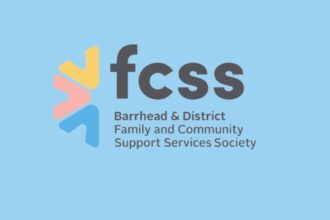In a significant move to shape the future of Canadian healthcare policy, Statistics Canada has launched its comprehensive Canadian Health Survey in Sudbury, marking a pivotal opportunity for local residents to influence national health strategies. The initiative, which began collecting data earlier this month, represents one of the most extensive health information gathering efforts in recent years.
“What makes this survey unique is its scope and depth,” explains Dr. Eleanor Thompson, regional coordinator for Statistics Canada’s health research division. “We’re not just asking about basic health metrics—we’re delving into everything from chronic disease management to mental health resources and accessibility challenges that Sudburians face daily.”
Randomly selected households throughout Greater Sudbury will receive invitation letters in the coming weeks. These aren’t ordinary surveys that end up discarded; they represent a direct channel for citizens to communicate their healthcare experiences to decision-makers who determine funding allocations and program development.
The timing couldn’t be more critical. As Canada’s healthcare system faces unprecedented challenges—from emergency room overcrowding to specialist shortages—the data collected in Sudbury will contribute to a national portrait of health needs. According to preliminary findings from similar regional surveys, communities that achieve higher participation rates typically see more targeted health initiatives implemented in subsequent years.
“This isn’t just about checking boxes,” notes Michael Larocque, Director of Community Health Planning for the Sudbury region. “When we have solid, region-specific data, we can advocate more effectively for the services our community actually needs rather than following generic national models that might not address our unique challenges.”
The survey methodology incorporates both online and in-person components, with trained Statistics Canada representatives available to assist participants who prefer completing the questionnaire with guidance. All information gathered remains strictly confidential under the Statistics Act, addressing privacy concerns that often deter participation.
“We’ve designed this survey to be accessible to everyone,” says Thompson. “Whether you’re a senior with chronic health conditions, a young family navigating pediatric care, or someone struggling with mental health support access, your experiences matter in creating a comprehensive picture of health needs in Northern Ontario.”
Previous iterations of national health surveys have directly influenced policy decisions, including the expansion of mental health services in underserved regions and adjustments to prescription drug coverage programs. For Sudbury, which faces distinct challenges as a northern urban center with responsibility for vast surrounding rural areas, the potential impact is substantial.
Local health advocates emphasize that the survey represents a rare opportunity for Northern voices to be heard in national health policy conversations typically dominated by larger urban centers. The information gathered will inform decisions about resource allocation and program development for years to come.
Residents who receive survey invitations are encouraged to participate promptly, with the data collection period continuing through early summer. Statistics Canada estimates that completing the survey requires approximately 45 minutes—an investment of time that could yield significant returns for community health resources.
As healthcare continues to rank among Canadians’ top concerns in recent national polls, the question remains: will Sudbury’s participation rate in this crucial survey reach the threshold needed to truly influence the future of local healthcare delivery? The answer may determine whether the region’s unique health challenges receive the attention—and resources—they deserve.

























